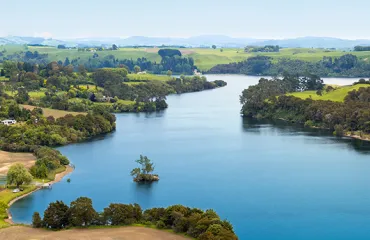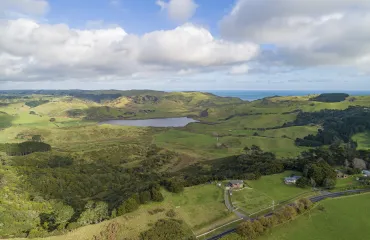Providing analytical analysis
Our work with colleagues in New Zealand started with a project for two of the country’s water and sewerage companies:
- Wellington Water, which provides services to the local councils of Hutt, Porirua, Upper Hutt, South Wairarapa, Wellington City, and Greater Wellington
- Watercare, the largest water and sewerage provider in New Zealand, providing services across Auckland.
By objectively analysing the two companies’ performance, and explaining our conclusions clearly, we helped them better understand:
- their costs
- the potential for efficiencies
- their future investment needs
- the range of charges that exist across New Zealand.
The ultimate objective of this analysis was to support the implementation of water sector reform in New Zealand.
We used the same collaborative, open and constructive approach to this work as we do in Scotland – on the basis that this sort of approach ultimately brings best benefits for all parties.
Providing regulatory support
The success of our initial project in New Zealand led to further work with Watercare, where we took on the role of providing regulatory support.
In this role we are helping the company put in place the same processes that we use to regulate Scottish Water. This is helping Watercare gain a better understanding of where its business is, and where it’s headed.
These changes should help Watercare provide better value for its customers and be better prepared for Three Waters Reform.
Water reform programme
More recently we have been working to support the Department of Internal Affairs (DIA) by undertaking a strategic analysis and estimation of the economic benefits from aggregating water service delivery entities in New Zealand.
New Zealanders were already experiencing the consequences of underinvestment in their water infrastructure, with several high-profile infrastructure failures in recent years. Part of the problem was a lack of good quality information on the state of that infrastructure, its current performance, and the investment that would be required to make improvements.
That is why, as part of this project, we helped 49 separate councils or other entities that are responsible for delivering water and sewerage services, to complete an extensive ‘Request for Information’.
Using the detailed data from these submissions we:
- carried out complex economic modelling to build a better understanding of the current system for delivering three waters in New Zealand
- benchmarked current operating costs and levels of service to those achieved by the leading companies in Great Britain
- modelled the scope for improving the sector’s efficiency in New Zealand
- estimated the likely scale of investment that would be required in the future, along with the impact on customer bills.
For this work we used the tried and tested models we had developed over our decades of experience as a regulator.
As well as presenting our analysis to the DIA, we gave individual feedback to the councils we had worked with, based on their own data. We submitted our final report to the DIA in May 2021.
Allan Prangnell | Department of Internal Affairs, New Zealand
“WICS bring deep expertise and experience in the water sector and the economics of delivering water services. They pair that expertise with a pragmatic approach to understanding the challenges we were facing and developing solutions that address these.
“They were practical in how they set about addressing our information challenges and took the time to understand the New Zealand context. They engaged in a genuine way with us and with local councils, often going above and beyond what would have been reasonably expected, including meeting with us and working through all hours of the day to accommodate the time zone challenges.
“WICS were open to challenge and independent review of their work, seeking to address concerns and demonstrate that their analysis was robust.
“WICS are unique in that they have both an understanding of what a mature three waters sector looks and feels like but have many staff who have experienced the transformation required to achieve that end state – this experience and knowledge has benefited us immensely and means they are able to pair their advice and analysis with practical experience of what works.”


